|
Anton Lesser is a mature English actor I admire. I see in him a kindred spirit. He is in his early seventies and still acting. I am in my sixties. He and I find common ground in our character types. He shines in roles as the mature father figure. His sensitive portrayal of Chief Superintendent Reginald Bright in the crime drama Endeavour is spell-bounding. The character is a mature authority figure. At face value, he is genial, soft-spoken, someone you would see as a nice guy. However, there is an edge to Chief Superintendent Bright. He came up through the ranks when corruption was rife in the police force. He has skeletons in his closet. In the twilight of his career, he tries to set things right before he retires. Bright is an antihero. He is a good and decent man but has a checkered past. It is hard for the viewer not to sympathize with him. I am suited to the same character type. I am well cast in roles where I play the mature father figure, a father figure who can be a pleasant or likeable man or a man with a sinister side to his character. To date, my screen roles included being a respected newspaper editor and mentor to a journalism student. Beneath his good-natured outward appearance, the editor was a serial killer. He was a tragic antagonist. In a feature horror film, I played a timid, harmless older man who suffered the misfortune of crossing paths with a demon god. The demon god possessed the formerly nervous man and compelled him to commit several murders. In contrast to these characters, in another part, I played an Orthodox Christian priest, a kind man who operates a youth ministry. His goodness shone through; he was a good and decent man who cared for his parishioners' spiritual and material welfare. Like Anton Lesser, I bring the nice guy feeling to my characters (the mature father type) even when the role has an edge. I am at my best in such roles. In the future, I hope to get more bookings in such parts.
0 Comments
John Carlson, the character I played in the Film Truth in Journalism, is a tragic antagonist. John Carlson tried desperately to preserve his reputation, only to destroy it. John Carlson was the editor of a newspaper. He learned the trade and rose through the ranks in the analog era. But, unfortunately, his skills and experience became obsolete, old fashioned. Still, he was successful in the newspaper business, and he could have accepted retirement and rested on his laurels. But instead, he feared becoming a has-been and forgotten so much that he resorted to manufacturing a narrative around suspicious deaths. Finally, he turned to murder to cover up his wrongdoing. Yes, the editor did it. The fear of losing his reputation was his undoing. Tragically, the fear became a self-fulfilling prophecy. Ultimately, all that remained of him and his identity as a newspaper editor was a brief entry in Murderpedia—something in the internet's dark corners for curiosity seekers preoccupied with macabre crime stories to find and read.
Shooting on my second screen role wrapped yesterday at 4:00 pm. The film, a short called The City in Grey, will be screened at the next Kino Ottawa event later this month. It was my first gig with Deniz Berkin, an Ottawa filmmaker, and it was a pleasant experience--save for the moment I took a swig of bourbon, thinking it was apple juice. The role I played was the Mentor. There are two characters in the film, the Mentor and his Protégé. I played the Mentor, and the chemistry between my scene partner (the Protégé) and me was first-rate.
I wrote this backstory for the character. The Mentor, Alfred, is an ambitious man who succeeded in business. He came from a working-class background and applied his business acumen to build his empire. Along the way, he accepted that graft and corruption are a part of life in the business world. He had dealings with corrupt public officials and underworld figures. He succeeded in avoiding scandals--though wagging tongues claim that he indulged in shady business dealings on his way to the top. Alfred lives on his own terms; he does not care what others think. Alfred understands that it is a dog-eat-dog world, and if you are not careful, you end up on the inside looking out. He has no regrets. His doctors advise that he is ill and has a short time to live. Given that reality, he decided to put his affairs in order and choose suicide. He will die the way he lived, on his terms. He selected a trusted associate to take the reins of his business interests. As a test of loyalty and her resolve, he made the offer of proprietorship of his business empire contingent on her assisting in his suicide. The day has come. He summoned her to meet him at the park where he sat, viewing the river, as he took stock of his life and legacy. She met him at the park and made their way to his apartment. There he poured a drink and handed her an envelope. He placed a letter of introduction for his lawyers for the reading of his will, plus the legal documents that transfer proprietorship of his business to her, and a note for his family. She handed him the gun he would use to take his life. They embraced before she left his apartment. Once she was on her way, she heard the shot. I look forward to the next Kino Ottawa screening to see the City of Mist in its first public viewing. I discovered an enchanting Netflix series, a drama called Young Royals, recently. I found it browsing titles with the keywords gay romance. The series is Swedish, the cast are Swedes, and the dialogue is in Swedish. The conversation is dubbed into English with subtitles inserted to translate text messages, emails, and the like. The premise of the series rests on the protagonist, Prince Wilhelm, the younger son of the Swedish Royal family and his desire to live an everyday life. His elder brother, Prince Erik, the Crown Prince, is heir to the throne and groomed for his role as King. Wilhelm is the spare. As much as he wants a normal life, his mother, Queen Kristina of Sweden, reminds him that his life as a prince is a privilege, not a burden.
On that premise, Prince Wilhelm tries to fit in at the posh boarding school he is sent to; he wants to be like the other students. But, at the same time, he has to keep up appearances and avoid bringing shame on his family and the institution of the monarchy. The plot thickens when Wilhelm is smitten by a classmate, Simon, a student of Swedish and South American ethnicity and a commoner. Simon returns his feelings, and a romance blossoms. Unfortunately, the untimely death of Crown Prince Erik in a car crash forces Wilhelm to step into the role of Crown Prince. That only tightens the restrictions on how he conducts his personal life. When a cousin clandestinely shoots a video of Wilhelm and Simon in bed together and uploads it to social media, the proverbial shit hits the fan. Yes, the subplots deal with issues that are universal for humanity: namely, honour, shame, duty, class distinctions, love, friendship, betrayal, dysfunction, drug and alcohol addiction, and the lengths families will go to avoid scandal. For example, the royal family covers up the scandal of Crown Prince Wilhelm's romance with Simon with a disingenuous denial that it is Wilhelm in the video. Another student is sacrificed to keep the Crown Prince out of an incident involving illicit drug use at the school. Avoiding shame and maintaining personal honour are powerful motivations, not just for royals. There is much to like about Young Royals. The casting is superb. What struck me is that they chose actors and actresses who did not have the perfect Nordic features. That is not to say they are unattractive; instead, they look like the people watching the series. One usually expects the cast in teen drama series to have perfect complexions and chiselled figures. Instead, the characters look like people you see in everyday life. The characters are not larger than life, as is the reality of royal families in continental Europe; Crown Prince Wilhelm and the rest of his extended family dress and carry themselves as middle-class Swedes. The actors and actresses play their roles superbly. Season two of Young Royals starts in November. I eagerly anticipate watching new episodes. The idea of a Crown Prince who is gay and wants an everyday life, including his love affair with another boy, a commoner, confronting the realities of royal duties, including taking a wife and producing an heir to the throne, intrigues me. I hope the second season will maintain the quality established in the first six episodes of season one. Who knew my first screen role would be none other than the Almighty? Yes, I got cast in a principal role in a short film in which I played God. I am not God, of course, and neither can I know what God thinks and feels. The film is called Divine Punishment. It had its first screening at the Kino Ottawa Film Festival recently. It was a challenging role; every role is, for that matter. The plot concerns three bored angels who misbehave, partying with fallen angels in "the restricted zone." Though they were confident they would not get caught, their heavenly father confronted them with evidence of their naughty antics the day after, sanctioned them, and then offered them a second chance. The movie is a comedy, divine; it had the feel of a Harold Pinter sketch.
I took on the character of the Almighty as a just and wise father, slow to anger and quick to forgive. That is well within my character type. But, as I said, I have no experience to draw on to play God. However, though I have no children, I have nine nieces and nephews and seven grand nieces and nephews. I am a part of their lives. I saw my nieces and nephews grow up and have their children. Also, I was the children's librarian in a public library in the 1990s. I have enough experience with children and young adults to understand they need discipline and guidance as they grow up. As God, I was the just and wise father who chastised three of his children when they tested him with their errant behaviour. Though he was quick to forgive, he added that if they did not correct their behaviour, they risked expulsion from the heavenly realm. I mastered the character by taking it on and making it my own. I took part in the September session of Method with Mike. Again, some familiar and new faces among the students and my agent, Lisa Meuser, sat in on the session. Mike devoted most of the session to Method exercises designed to help the actor develop sense memory. He led the class in the coffee cup exercise. My experience as an actor informs me of the importance of ridding yourself of distractions when you perform. Sadly, throughout the coffee cup exercise, try as I might, I could not stop the Four sea interludes from the opera Peter Grimes playing in my head. Ah, well, practice makes perfect.
What I like about the Method with Mike sessions is the informality. It is a good space for novice and seasoned actors to loosen up and work on acting techniques. I appreciate Mike's honesty too. You will not hone your craft unless you are open to correction and criticism. The session concluded with an improv between a classmate and me, a new friend named Dimitri Abdul Nour, a fine and upcoming young actor. Mike praised my progress in the classes and told me to keep it up. After several auditions and no callbacks, I landed my first screen role without having to audition. Instead, a director needed an actor to step in to replace someone who dropped out shortly before the shooting began. A cast member and another actor I know from my training at the Screen Acting Academy mentioned me to the director as a potential replacement in the role. I was asked to contact the director if I was interested in participating. I sent her a message expressing my interest in the role; she replied, sending a copy of the screenplay. I looked over the script and wrote back that I was interested. The part was in my character type, a just and wise paterfamilias. I asked where and when I should turn out for the shoot. Filming was scheduled and took place on Friday evening, September 16th. I had three days to get the lines down.
It was my first screen role, so I felt a mix of anticipation and jitters. However, I was confident in my experience as a stage actor and my training in screen acting techniques. It was not the first time a director asked me to step in to take over a role in a pinch. I wanted to give it my best and do a good job. I recalled what my grade seven industrial arts teacher, Mr. Balls, told the class: "there's always room for improvement." I applied what I learned about acting for the camera in my screen acting classes. The director told me my work was good, and we completed the shoot in an appreciable number of takes. The film will have its first screening at the next Kino Ottawa event on September 28th. I look forward to attending the event and seeing how the finished product is received. I took part in my first Method with Mike session recently. The venue was small and made me think of the classroom where I studied dramatic arts in high school. It was a small group of people, actors and actresses represented by the Meus Talent Agency. Our instructor, Mike, is a pleasant man. He got down to business; he stressed the method as he learned it at the Actors Studio in Los Angeles. He shared numerous anecdotes about his experience as a stage and screen actor in Toronto and Los Angeles. The session was informal; it did not have the structure of the classes I took at the Screen Acting Academy.
His recollection of how he started in the entertainment industry resonated with me. He began at Ottawa U as a drama major. However, he became disillusioned when he found it was about academics, not acting technique. Similarly, I had the same experience when I enrolled at Queen's University as a drama major in 1980. I arrived at Queen's thinking I would train as an actor, only to find it was strictly textbooks, term papers and exams. I think Mike and I got lousy guidance in high school. My guidance counsellor and drama teachers never mentioned theatre school or a Bachelor of Fine Arts program for an aspiring actor. As a result, he left Ottawa U after the first year. I stayed at Queen's, where I got a degree in sociology. He returned to acting sooner than I when he left Ottawa for Toronto to seek his fortune. He moved to Los Angeles eventually and worked as a background performer and actor in feature films. He experienced the casting couch with a creepy talent agent; he recounted his experience as a warning to the class to beware as we make our way as performers. He survived hard times when he was out of work. His experiences had a familiar ring. I recall the summer of 1988 when I made my way through the ByWard Market during cocktail hour to line up at the Shepherds of Good Hope soup kitchen for a stale baloney sandwich and a watery cup of tea. The session taught me the importance of ridding yourself of tension before performing. First, Mike spoke at length about the pitfalls of mannerisms and tics. Yes, I know too well about that; when stage fright takes hold, I flail with my hands, swallow and look down. Next, he discussed what I learned in the Screen Acting Academy about acting for the camera. The camera picks up every little movement; jerky movements and leaning make you out of focus. He also said we should take improv classes. I think the monthly sessions with Mike will help me keep a lid on the stage fright. That said, I will continue the classes with the Screen Acting Academy. I hope the Screen Acting Academy will offer its improv classes in the future. My last stage role was Charlie Cheswick in the Ottawa Little Theatre's production of One flew over the Cuckoo's Nest. Charlie was a challenging character to inhabit. It took a deep level of concentration and the ability to unleash my imagination to be Charlie. Charlie was a voyeur; he started peering through windows to watch women undress as a child. As he matured, he made crude sexual advances toward women and voyeurism. Charlie did not fit into society, so much so that he checked himself into a psychiatric hospital. Charlie accepted the dull routines of the institution and the medication in exchange for a roof over his head and three meals a day. Charlie was creepy around women, but the reality was he never expected the women he approached to return his interest. When a nurse in the hospital got a little coy with him, he was panic-stricken. Charlie was all bluff and bluster when it came to chasing women. Despite his flaws, Charlie expressed his humanity by befriending and looking out for another patient. Martini was a war veteran with PTSD; he relived his wartime experiences through hallucinations. Charlie took care of him and calmed him when he had an episode. Charlie leered at women, but he loved Martini.
The production got good notices from the critics, who mentioned the "strong supporting cast" in their reviews. However, what I remember most about my performance is the evening after a show when a woman in the audience struck up a conversation with me. We chatted a few minutes about the play when she exclaimed, "You're nothing like the character!" It might have been my imagination, but I detected a note of disappointment in her tone. Well, no, I am not a voyeur, and no, I do not make crude sexual advances toward women. Furthermore, I am happily married to my husband, Mika; we will celebrate twenty-four years together this week. Nevertheless, it was pleasing to hear that I gave a convincing performance as Charlie, someone who is a world apart from the man I am. It gives me the confidence I need as an actor to take on a character and bring him to life on stage and screen. |
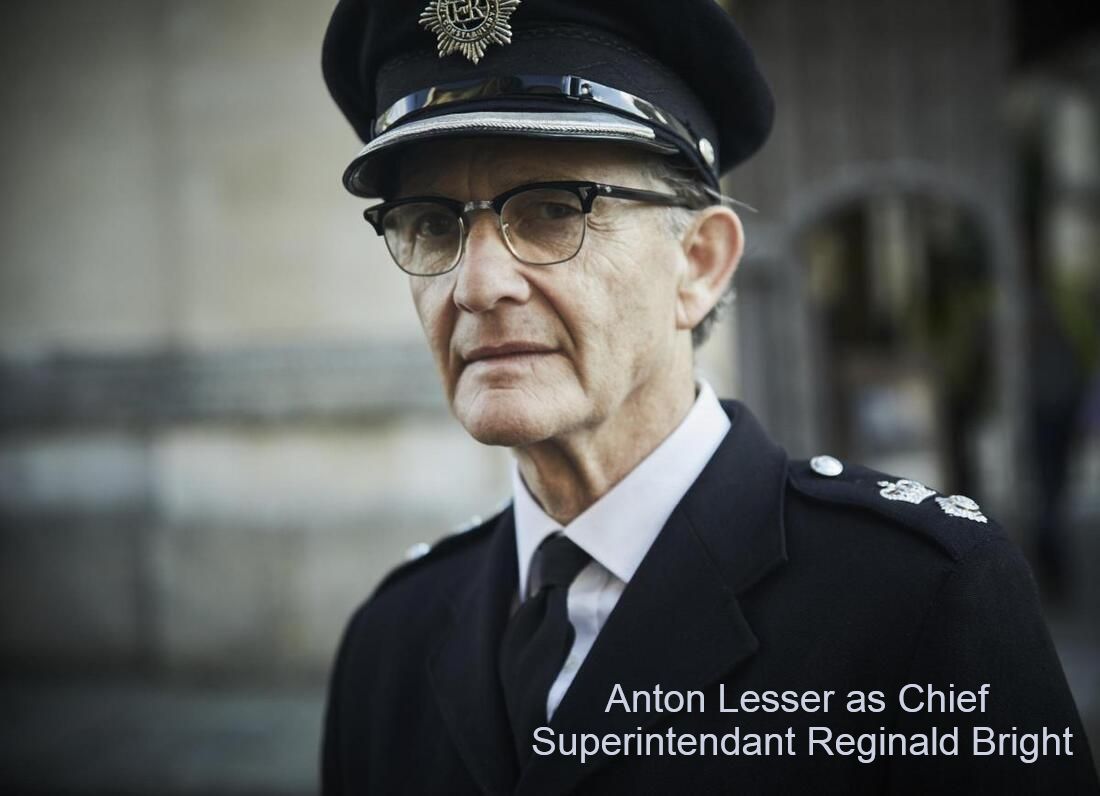
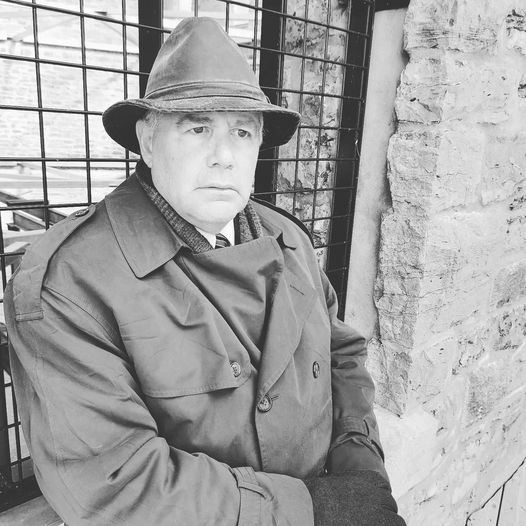
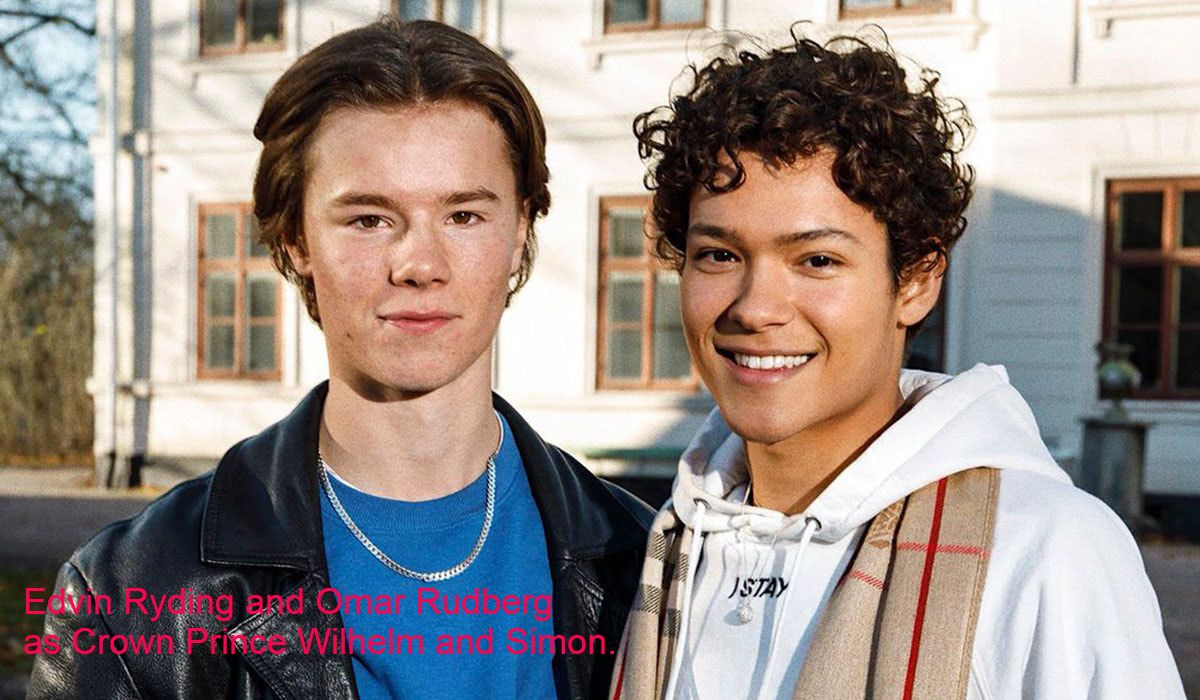

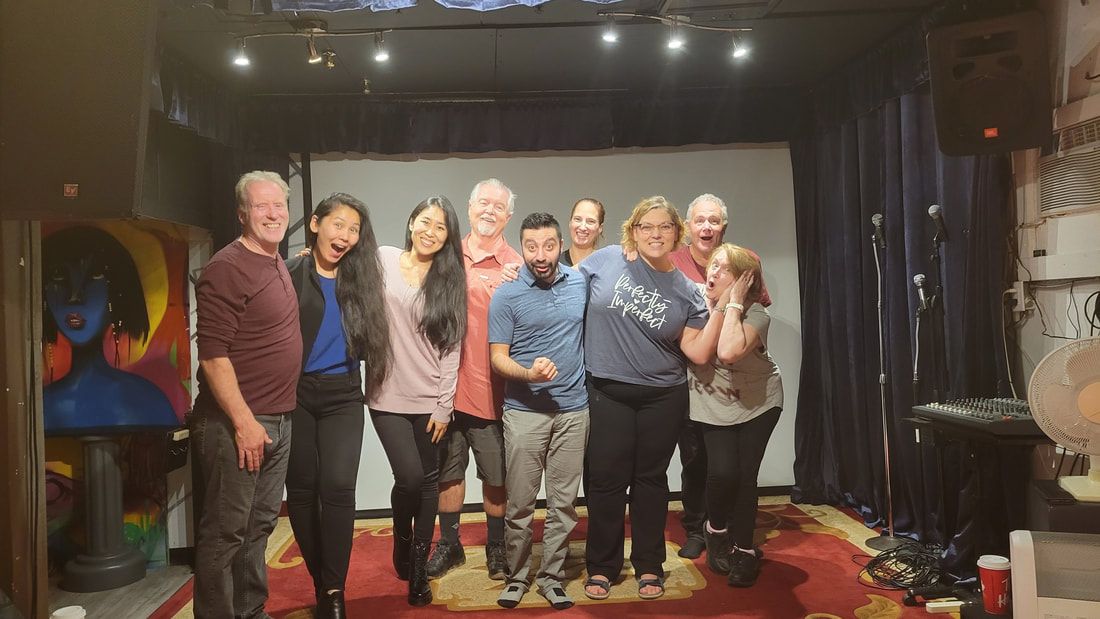

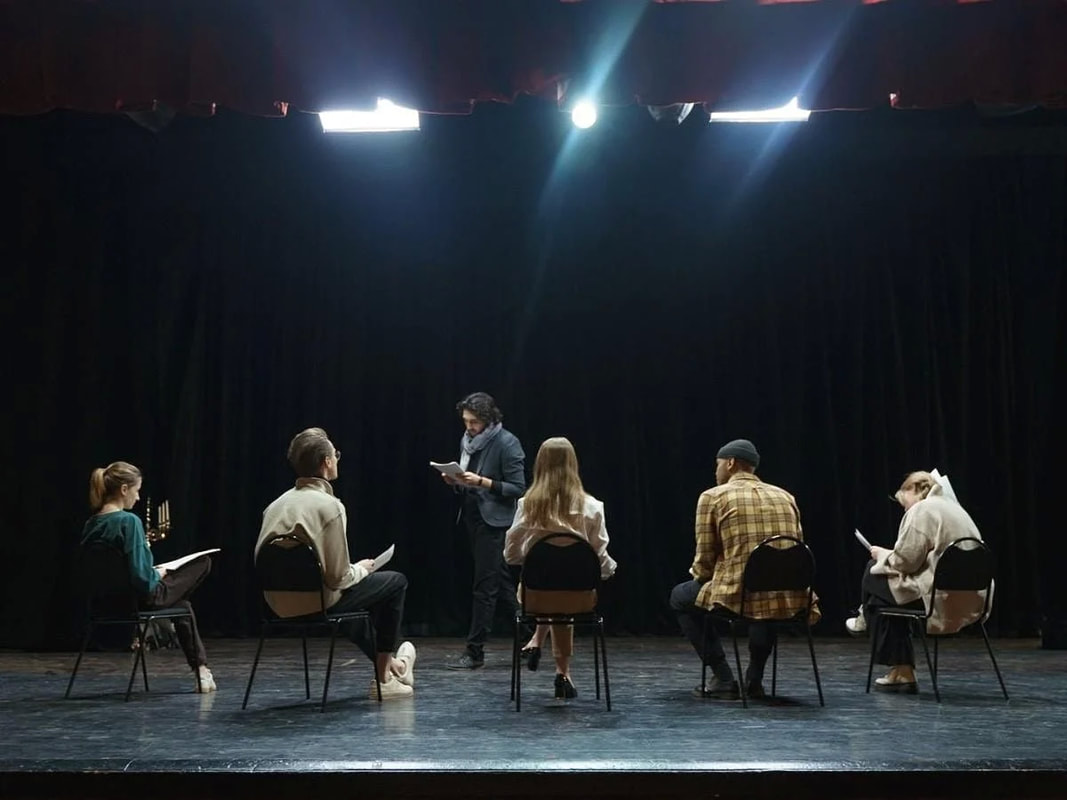
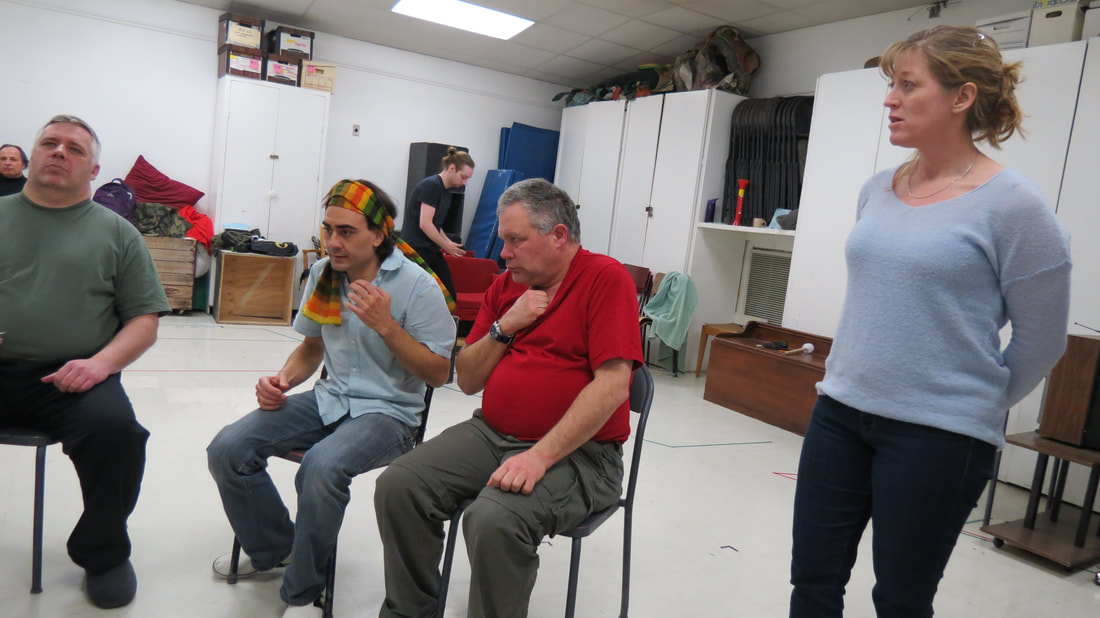
 RSS Feed
RSS Feed